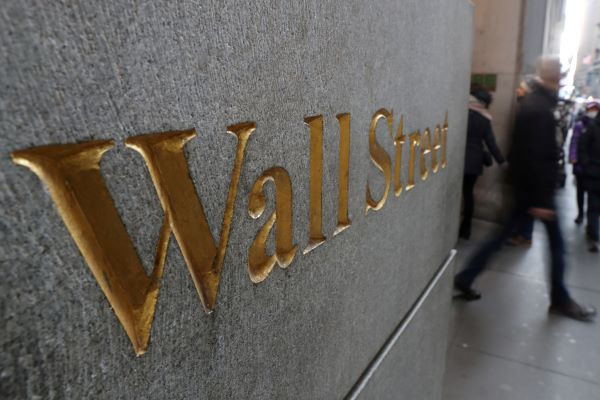Wall Street's irrational exuberance came crashing to earth Monday with the Dow tanking by 1,031 points -- the largest plunge in two years -- over the very real fear the raging Covid-19 outbreak does pose a real threat to the U.S. and global economic growth.
Monday's plunge was also the third-largest 1,000 point correction in the Dow's history after Feb. 5 and Feb. 8, 2018. With Monday's downfall, the Dow gave up all its gains for the year.
The broad market sell-off followed a large jump in confirmed cases of Covid-19 in Italy. The stunning casualty surge to 230 cases Monday from only 17 on February 21 goaded investors into unloading stocks to gobble-up safe-haven assets such as gold, which hit a seven-year high at $40 an ounce.
The NASDAQ and its tech stocks heavily dependent on China took an especially hard beating Monday, falling almost four percent. Some analysts believe a 10% to 15% correction is in the offing.
Wall Street stocks nosedived Monday while markets worldwide tumbled. Oil prices sank in unison to its lowest so far this year. The Dow Jones Industrial Average closed 1,031.61 points lower, or 3.56%, at 27,960.80. The S&P 500 surrendered 3.35% to 3,225.89 while the NASDAQ ended the day 3.71% lower at 9,221.28.
Monday was the Dow's biggest point and percentage-point drop since February 2018. The Dow also gave up all its gains for 2020 and is now down 2% for the year. The S&P 500 also had its worst day in two years and also saw its year-to-date gains erased, as well.
As might be expected, stocks heavily exposed to China took the worst of it. Delta Air Lines and American Airlines, which have slashed most of their flights to and from China, were both down more than 6% while United Airlines closed 5.4% lower.
Chipmakers were also broadly lower. GPU-maker Nvidia Corporation shares fell 7.1% while Intel Corporation ended the day down 4%. Semiconductor-maker AMD lost 7.8%. The VanEck Vectors Semiconductor ETF (SMH) closed lower by 4.5%.
Analysts said Wall Street's belated recognition of Covid-19's immense economic threat follows the coronavirus' rapid spread in northern Italy, which accounts for a third of that country's industrial output and is the center of its multi-billion-dollar fashion industry based in Milan. A spread of contagion into neighboring countries, Germany in particular, has emerged as a frightening possibility.
Wall Street had earlier stubbornly dismissed the impact of Covid-19, rationalizing things would be fine as long as the outbreak remained contained inside China. The speed of the spike outside China seems to have rattled investors.
Italy, which reported its first Covid-19 infection early last week, as of Monday admitted to 230 cases and six deaths, according to real time data from the Johns Hopkins Center for Systems Science and Engineering (CSSE).
"The market had been sanguine about the spread of the coronavirus," said Quincy Krosby, chief market strategist at Prudential Financial. "That sanguine stance is being tested today."






